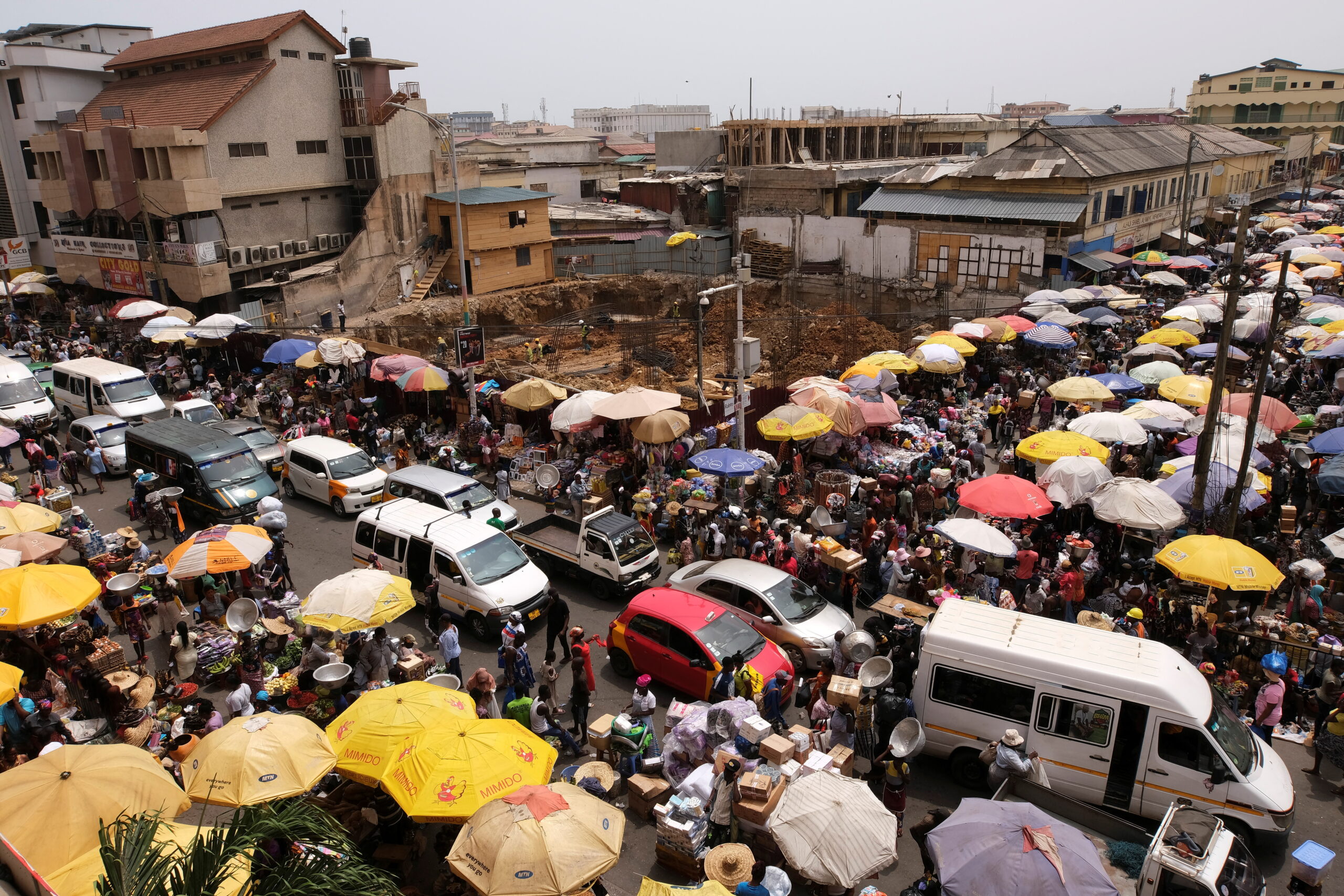
A general view of the Makola market, one of the country's largest trading centres in Accra, Ghana March 26, 2022. Picture taken March 26, 2022. REUTERS/Francis Kokoroko
Ghana is showing clear signs of economic recovery as inflation fell for the eighth consecutive month in August 2025, official figures reveal.
The National Statistics Service reported that year-on-year inflation declined to 11.5%, down from 12.1% in July, marking the lowest level since October 2021.
The reduction in inflation spans both food and non-food items. Food prices, historically more volatile, rose by 14.8% in August, a slight decline from 15.1% in July. Non-food inflation fell to 8.7%, while consumer prices nationally recorded a 1.3% decrease between July and August.
This provides relief to households whose purchasing power had been severely affected by the price surges of 2022 and 2023.
Regional disparities, however, remain pronounced. Inflation continues to reach 21.8% in the Upper West region, while the Bono region reports the lowest rate at 6.1%.
The Bank of Ghana has played a central role in stabilising the economy. Following the currency crisis and a nearly 20% loss in the value of the cedi in 2022, the central bank adopted a more accommodative stance. In July, it cut its key interest rate by 300 basis points, reducing it to 25%.
Officials described the move as both a vote of confidence in the downward trajectory of inflation and a mechanism to stimulate investment and domestic consumption.
Fiscal measures have complemented monetary policy.
The government revised its deficit forecast for 2025 downwards from 4.1% to 3.8% of GDP, reflecting stronger-than-expected revenue performance in the first half of the year.
These adjustments align with the recovery program agreed with the IMF, whose support has been instrumental in stabilising Ghana’s macroeconomic framework.
Authorities had targeted an inflation rate of 11.9% by the end of 2025. With August figures already below this mark, Ghana is on track to meet or potentially exceed its objectives ahead of schedule.
Economists caution, however, that reliance on food and fuel imports and planned tariff increases in energy and water sectors may pose risks.
Ghana’s declining inflation is a welcome development for households and businesses alike, reflecting the combined impact of prudent fiscal policy and accommodative monetary measures.
Sustaining these gains will require further efforts to diversify local production, reduce regional disparities, and strengthen resilience to global economic shocks.



